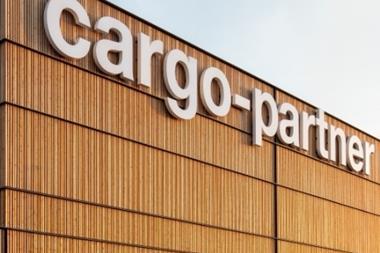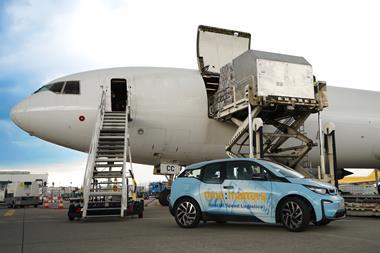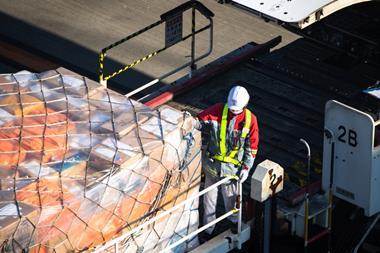DSV saw profits and revenues take-off in 2018 but has declined to provide any further comment on its attempt to acquire Panalpina.
The Copenhagen-headquartered freight forwarder saw full-year revenues increase by 5.5% to DKr79bn, earnings before interest and tax (ebit) were up 11.7% to DKr5.4bn and net profits increased 32.4% to DKr4bn.
The company refused to comment further on its attempted $4.1bn offer for Panalpina, which was this week rejected by the forwarder’s largest shareholder, but it did add that it would continue to pursue mergers and acquisitions (M&A).
“In recent years, several of the large freight forwarding players have systematically gained market share,” the company said in its report.
“This is a trend we expect will continue, and DSV is committed to taking an active part in the industry consolidation by growing both organically and via M&A.”
Chief executive Jens Bjørn Andersen added: “We delivered a strong set of results for 2018. Quarter four 2018 was in line with our expectations and we can report an EBIT of DKK 5,450 million for 2018, a 15% growth on 2017.
“We are on track to meet our 2020 financial targets and 2018 demonstrates our dedication to delivering quality services to our customers and growing organically.
“In line with our strategy, we are actively pursuing M&A opportunities and we believe that the right transactions can create value for all stakeholders."
Andersen was later asked to explain why the company wanted to "burden itself" with another big acquisition given its strong results and the weakening economic climate.
"We like challenges - it's part of running a big company," he said. "We are of the very clear understanding that in this extremely fragmented industry, where the biggest players have only a fraction of the market, consolidation makes a lot of sense.
"We have created value for stakeholders every time we have built a bigger company. Every time we have acquired one of our competitors, we have created value for shareholders, for the employees, long-term, and for the customers.
“The way we see it is, at least from analysing our own situation, today we are much stronger than would have been if we had not made acquisitions.
"You could debate around the timing, but there is nothing wrong with any timing and right now is as good a moment as any moment.
“We have previously done acquisitions in times of uncertainty and also times of high economic growth and high volume growth and both have contributed to a successful development at DSV."
Andersen pointed out that the biggest players in the forwarding industry had a market share of between 2-3% and the 20 largest have a combined share of 30-35%.
In other industries market leaders will have a share the equivalent of the top 20 in forwarding.
He was also questioned on a change in acquisition strategy, with friendly takeovers in the past but the recent offers for Ceva and Panalpina described as "hostile takeovers”.
Andersen responded: "We don't necessarily consider the last two, Ceva and Pnaalpina, as a hostile approach. A true hostile approach would have been very different from what we have done, so you shouldn't read too much into this.
"Each transaction has its own characeteristics and the way approach the target is of course based on a conclusion from very thorough analysis on each target."
The airfreight business saw revenues for the year increase by 7.5% year on year to DKr18.9bn, gross profit was up 9.7% to DKr4.6bn and airfreight volumes increased by a market-beating 8.3% to 689,000 tonnes.
The overall airfreight market is estimated to have increased by around 4% last year, the forwarder said, with demand growth dropping off as the year progressed.
However, it added that it felt the market growth of 2018 was a more normal level than 2017’s rapid increases of 8-9%.
Andersen was later asked about volume volatility, especially in the fourth quarter when growth tailed-off - was this down to nearshoring of production?
He responded: “It has been a volatile and strange year in terms of volumes. It has more to do with de-stocking activities that have happened. We have not really seen too much nearshoring apart from some high-profile cases. It is not a trend that we see.
“We do more see movement within the regions, some production may have moved out of China to some neighbouring countries, which does not represent a problem for us.
“Overall, the year has been okay, we have seen growth and we are optimistic we will see growth for 2019.”

It said the volumes growth was driven by exports from the Americas and Europe, Middle East and Africa regions. It noted a limited impact from US-China trade tariffs, although it has limited exposure to the transpacific trade lane.
“Our growth rates were highest in the first half of 2018 and throughout the year we achieved the highest growth in exports from Europe and North America,” the company said.
“The increase in revenue was mainly driven by growth in both air and sea freight volumes. Furthermore, the average freight rates – mainly for sea freight – were higher in 2018 than in 2017.
The increase in gross profit was driven by higher freight volumes. The development in gross-profit per shipment was "satisfactory" in 2018 and improved for both air and sea.
“The profit margin improvement was driven by continued production efficiency improvements across the organisation. The division has successfully leveraged on the global network, efficient IT infrastructure and back-of-office functions,” DSV said.
The overall company saw revenues improve on the back of growth across all three division (Air & Sea, Solutions, Road). It also made marketshare gains, in particular within airfreight and solutions.
Currency effects had a negative impact on revenues, the company said.











